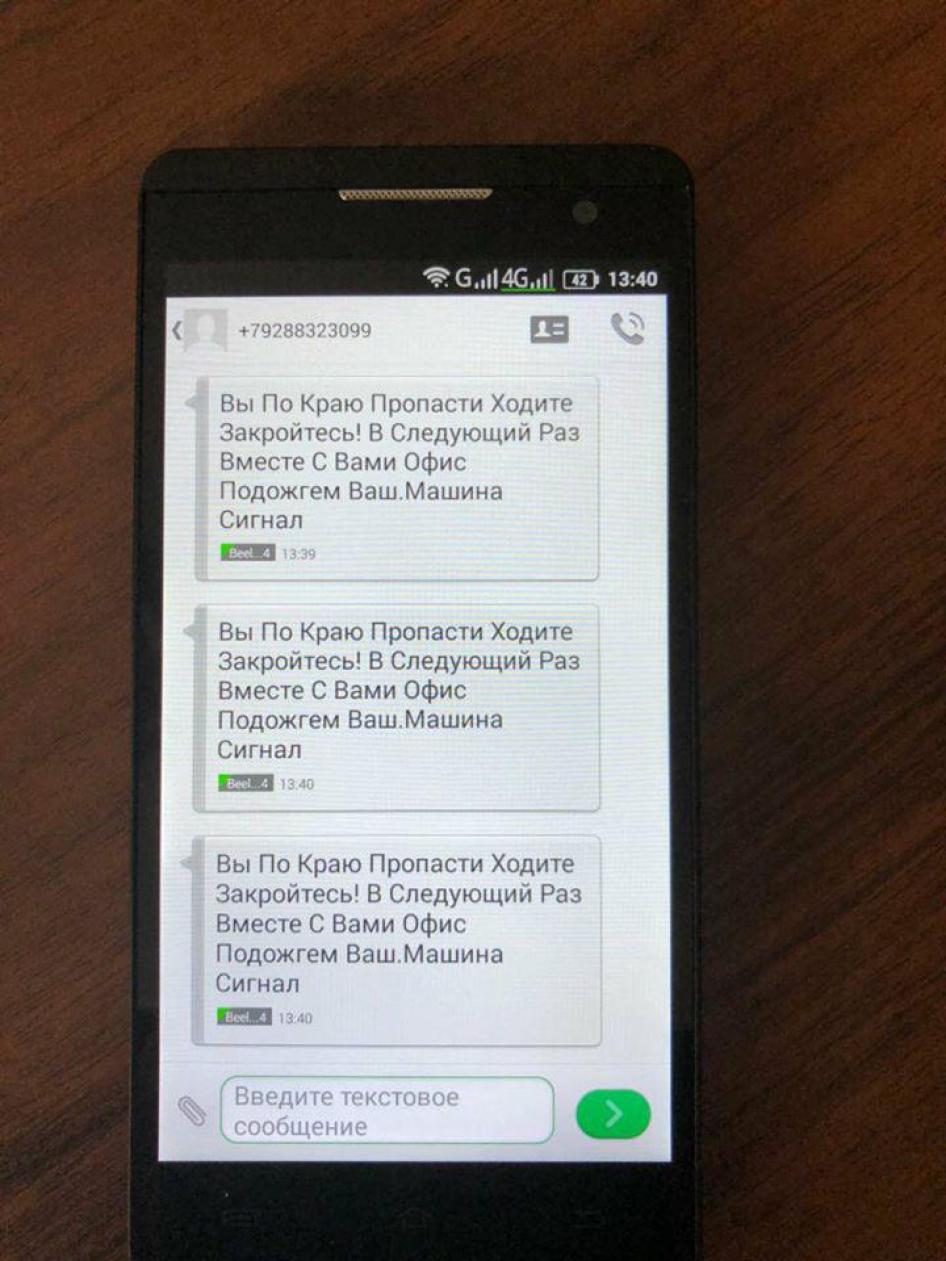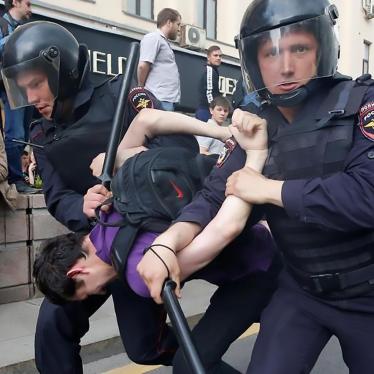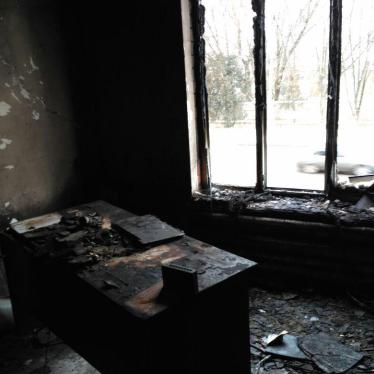It’s hard not to conclude that Chechen authorities are on an all-out campaign to force Memorial - one of Russia’s leading human rights groups, - to end more than two decades of documenting abuses in Chechnya.
Last night, someone set fire to the car of one of Memorial’s drivers. To make sure there was no misunderstanding about the message being sent by this attack, someone sent repeated text messages to Memorial’s mobile phone saying “You’re walking on the edge of the abyss. Shut down! Next time we’ll burn your office, with you inside. The car is just a warning.”
On January 9, police arrested Oyub Titiev, the director of Memorial’s office in Chechnya’s capital Grozny on blatantly fabricated marijuana possession charges. A week later, masked assailants set fire to Memorial’s office in Nazran, Ingushetia—a 90-minute drive from Grozny, destroying most of it.
After Titiev’s arrest, Chechen police harassed the landlord of Memorial’s Grozny office, warning her, “don’t you know who you’re renting to?” Meanwhile the Kremlin-sponsored leader of Chechnya, Ramzan Kadyrov, unleashed a stream of invective against Memorial, calling them hired “snitches” and “enemies of the people” who “have no Motherland, no ethnicity, no religion…” and announcing “Well, I will tell you how we are going to break the spine of our enemies.”
After more than a decade of ruling Chechnya, Kadyrov has transformed the republic into what one observer has called “a totalitarian state within a state.” Even the mildest criticism of Kadyrov is ruthlessly suppressed. In the years after the murder of Memorial’s lead Chechnya researcher, Natalia Estemirova, human rights defenders there continued to face beatings, arson attacks, threats and smear campaigns.
What’s different now is the sustained nature of these attacks, and the exclusive focus on Memorial, which has documented abuses in Chechnya for 25 years. The first warnings started in late December, soon after Kadyrov was included as a target for US sanctions under the US Magnitsky Act and his Instagram account was blocked. A top Chechnya official accused human rights defenders indirectly of “pouring rivers of lies” to their “bosses across the ocean.”
So far the Kremlin’s spokesman has minimized the situation, stating that the drug case against Titiev was being investigated, and that no conclusions should be drawn from the torching of Memorial’s office.
It’s time for the Kremlin to start drawing conclusions, and fast, before Chechen authorities move from this war of attrition against Memorial into something more dire.











